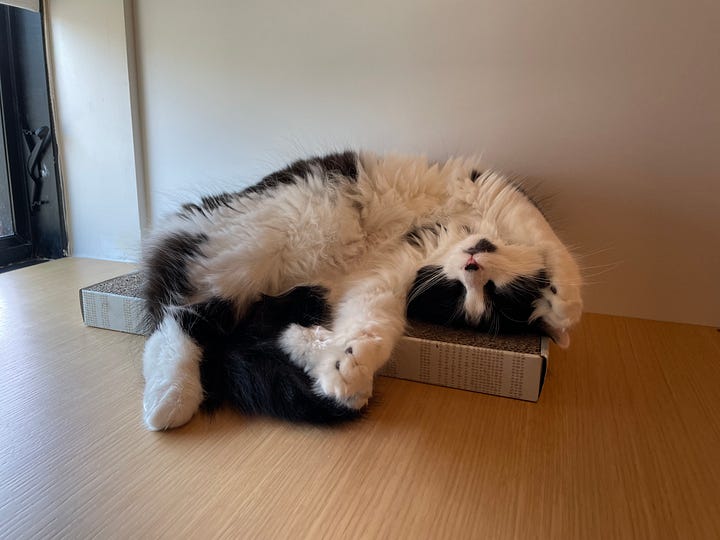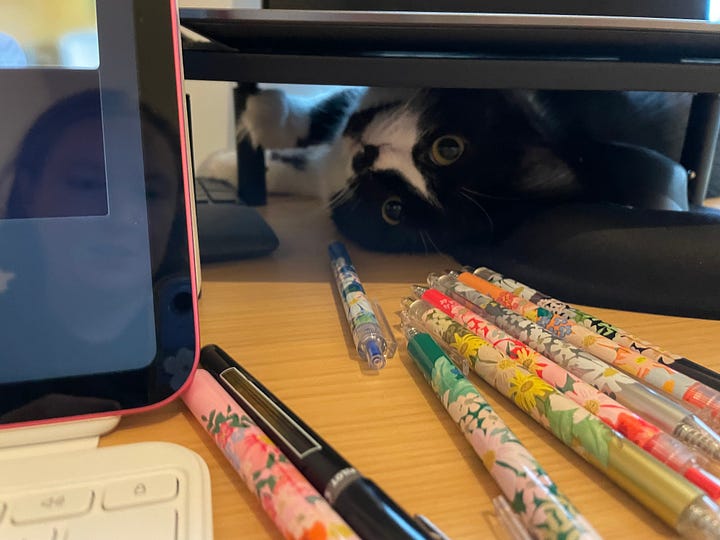An eclectic mix of books this month, though still short on hard non-fiction. In summer I think I need stories that really carry me away to hold my attention as I read with windows open or sitting in a park. Let’s dig in!
Short War by Lily Meyer
Fair warning that if reading about the lead up to a fascist coup is not exactly comforting in the present moment, you should skip this one. Current real-life nightmares aside, I loved this novel. It takes place across three different points in time with connected characters, beginning with a young man in Chile figuring out what he believes in.
The Wild Girls by Ursula K. Le Guin
This is a single short short story, essay, poem, and interview collected together. “Wild Girls,” the title story, does what Le Guin does best—incredible world building. I found it well written but depressing, though was definitely amused by her smart ass interview answers.
The Wrong Way to Save Your Life by Megan Stielstra
Fear is the overarching theme of Stielstra’s memoir via essays, sometimes embracing it head on and sometimes overcoming. I adored her writing and the pieces made me both laugh and reflect. Bonus points for mostly taking place in Chicago, a city she loves.
The Unbearable Lightness of Being by Milan Kundera
I first read this about 15 years ago and loved it even more on a reread. Kundera brings together compelling characters, beautiful writing, and creative playing with format in the context of the Soviet invasion of Prague in the 60s. I savored every page; this is an all-time favorite.
Ms. Hempel Chronicles by Sarah Shun-lien Bynum
This is an odd and charming short novel/collection of short stories about an unconventional middle school teacher still doing her own growing up. It’s funny and sometimes painfully awkward like most things having to do with seventh grade.
The Bell and the Blackbird by David Whyte
I picked up this collection after going to an event that opened with a reading of Whyte’s poem “Seeing You,” which stuck in my mind for days. His poetry sketches lush landscapes and most of them I found pretty more than connecting to them emotionally. The short section of love poems in the collection stood out, though.
Drive Your Plow Over the Bones of the Dead by Olga Tokarczuk
I really loved this weird and gorgeously written novel. The narrator has a peculiar way of describing people and events that sucks you into her world, a remote Polish village where she spends her time plotting out horoscopes and walking through the woods. Slowly and then quickly, it morphs into a thriller and I couldn’t put it down.
Bad Dreams in the Night by Adam Ellis
I’m a longtime fan of Ellis’s comics (@adamtots on Instagram) and his twisted sense of humor. This is a collection of eleven long form horror comics with explicit nods to books like Scary Stories to Tell in the Dark that I loved as a child even though they literally gave me nightmares. This book is creepy, nostalgic, paired with great illustrations, and I adored it.
This month the kittens’ picks were easy. Sazerac liked the upside down cover of Short War and Margot enjoyed the themes of revenge in Drive Your Plow Over the Bones of the Dead.


What are you reading? Do you go back and reread old favorites? Are your pets also constantly plotting crimes?









Did you say non fiction? Well, predictably I've got some.
Try The King of Confidence by Miles Harvey. In it he recounts the history of James Strang, a Joseph Smith Mormon spinoff who founded a community in Burlington Wi. It helped that he too was able to find some tablets that God buried under a tree. He wound up taking over an island in north Lake Michigan. His con game is pretty transparent and you wonder how anyone could fall for his BS then you look around today and say, " Oh ,, yeah, I get it".
Did we ever talk about King Leopold's Ghost? It provides a history I was unaware of about the Belgian Congo. King Leoplod 11 of Belgium wanted to be as rich as his monarchic counterparts in Europe so he squeezed the Congo of its resources and was responsible for one of the largest genocides in history. It is not pleasant but filled in a gap of knowledge for me that I never learned in school.
Ursula LeGuin-thanks for the suggestion, haven't read her in years. Here father , Franz Boaz, is considered by many to be the father of anthropology. Her sci fi story, The Lathe of Heaven is a favorite of mine
Mark